I almost like to practice putting drills as much as playing golf. I want to become a better putter.
Ask yourself “What is it going to take to become a great putter?” There is only one correct answer and that is you have to make more putts.
Professional golfers devote 60 percent of their practice time to short game practice. I’ve heard putting practice consumes up to twenty hours a week for some.
Printable Putting Drills // Printable Putting Games // Printable Short Game Test
Even if you are retired, that’s a lot of practice. For me, I can devote a couple hours a week to practice on top of a couple practice / playing rounds.
Suggestion: I’ve purchased target holes to accommodate these putting drills. Eyeline Golf target holes
I did so because everyone has to pick there ball out of the hole and some people squirm over three footers. The area around the hole is really bumpy from traffic.
So I use more remote locations on the practice green and use target holes.
With a bumpy target area, you have to hit it hard enough to go past the hole to hold the line. That is also why you will see drills emphasizing putting past the hole in the following drills.

Here are some drills that I have compiled over time. View putting accessories that go along with these drills.
Lined Ball Drills
Straight Putt Lined Ball Drill
These are 4 foot and 8 foot straight putts. Use the line on the ball or a balls with lines around them. The object is to strike the ball with a square putter face and make the putt. If the line on the ball wobbles the putter face is not square at impact. If you miss the putt, determine why you missed. Ask yourself…Was the putter face square? Was my pace good? Did I read the green wrong? Adjust accordingly for the next putt. Place a marker at each distance along with 2 golf balls. Begin at 4 feet and then putt from 8 feet.
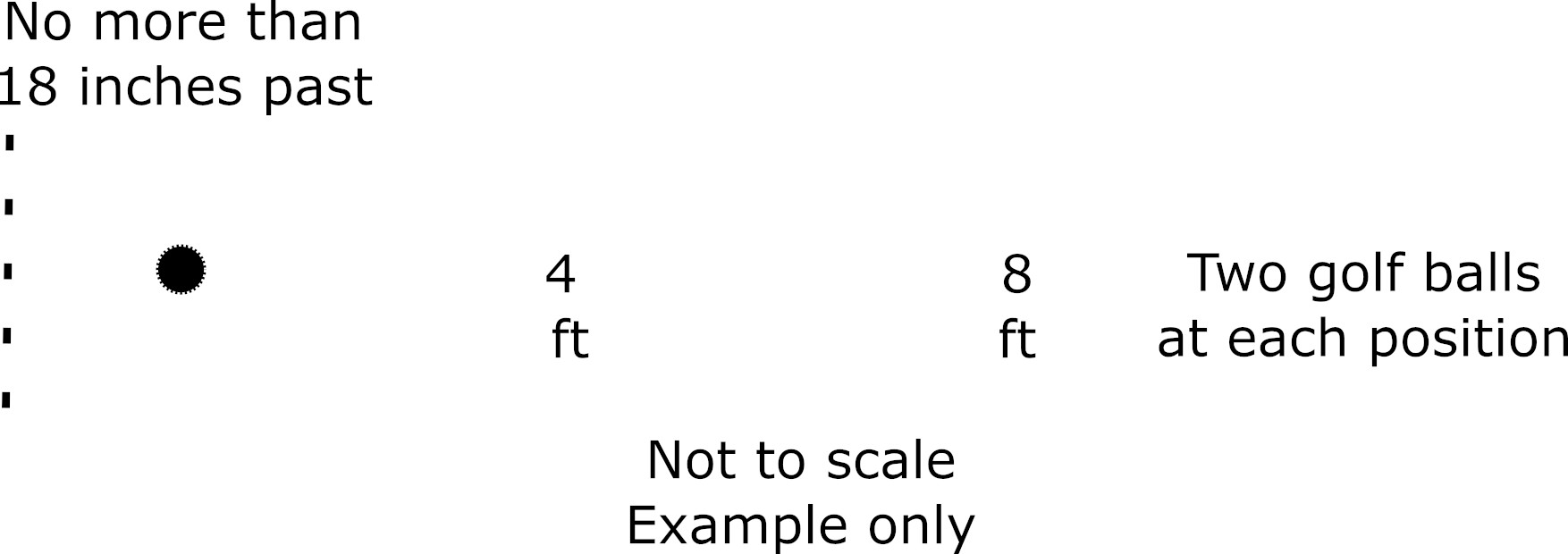
Score 2 for a made putt and 1 for a putt past the hole but not by more than 18 inches.
Left and Right Breaking Putts Lined Ball Drill
These are 15 foot breaking putts. This is a green reading drill using 10 shots. There are 5 right breaking putts and 5 left breaking putts. Use the line on the ball or a balls with lines around them. The object is to strike the ball with a square putter face and make the putt. If you miss the putt, determine why you missed. Ask yourself…Was the putter face square? Was my pace good? Did I read the green wrong? Adjust accordingly for the next putt.


Score 2 for a made putt and 1 for a putt past the hole but not by more than 18 inches.
What to do if you have trouble with the drills above
Keep track of trends that are causing you to miss.
Problem one
You are have trouble keeping your putter face square. Answer: Try the T3 Putting Arc
This is the travel sized putting arc and can easily fit in your golf bag.
Suggested Drill: Using the T3 Putting Arc, putt 10 putts from six feet with the goal of making the putt. The device helps you hold your putter face square.
Problem two
You are having trouble with the speed of your putts. Answer: Your tempo is off and the fix is to use a metronome or download a metronome app. The apps are free to download on your phone. Just about all the pros have a combined putting tempo and rhythm of between 72 and 80 beats a minute. However, 90 percent are at 76 beats per minute. Set the metronome or metronome app accordingly.
Suggested Drill: Practice saying One… Two or 1000…. One while you putt along with the metronome. Say the first number on the first beat and the second number on the next beat. In other words, the first beat is the backstroke and the second beat is the forward stroke. This tempo is for ALL length putts. If you have longer putts your tempo stays the same, but your pace or speed is faster.
Problem 3
You are having trouble with your green reading. Answer: Set up a test. This is a 15 foot putting drill for right and left breaking putts. Start with a right breaking putt and then change to a left breaking putt. Place the Wright Putting Dynamics Laser Optics V3 or the Pelz Elevated Aim Line at zero feet. Aim the laser at or stretch the elevated string line to your aim point past the hole. For the laser, I put a tee at the aim point. There are 5 putts for the right break and 5 putts for the left break. Take a putt and if you miss the putt, determine why you missed. Ask yourself…Was the putter face square? Was my speed good? Did I read the green wrong?
Suggested Drill: Adjust as needed for the next putt. If you read the green wrong move the laser or elevated aim line. You can also mark your original aim point so that when you adjust you will be able to tell how far you were off and take it to the course if that is your trend. The object is to putt under the string line or on the laser line and make the putt.
Marker Drills
Marker Drill – 6 inches to 10 feet
Place markers at 6 inches, 1 foot, 2 feet and every foot to 10 feet. This is a straight line drill. The object is to make the putt or leave the ball no farther than 18 inches past the hole. Start at 6 inches and work your way back to 10 feet. Use one ball at each location.
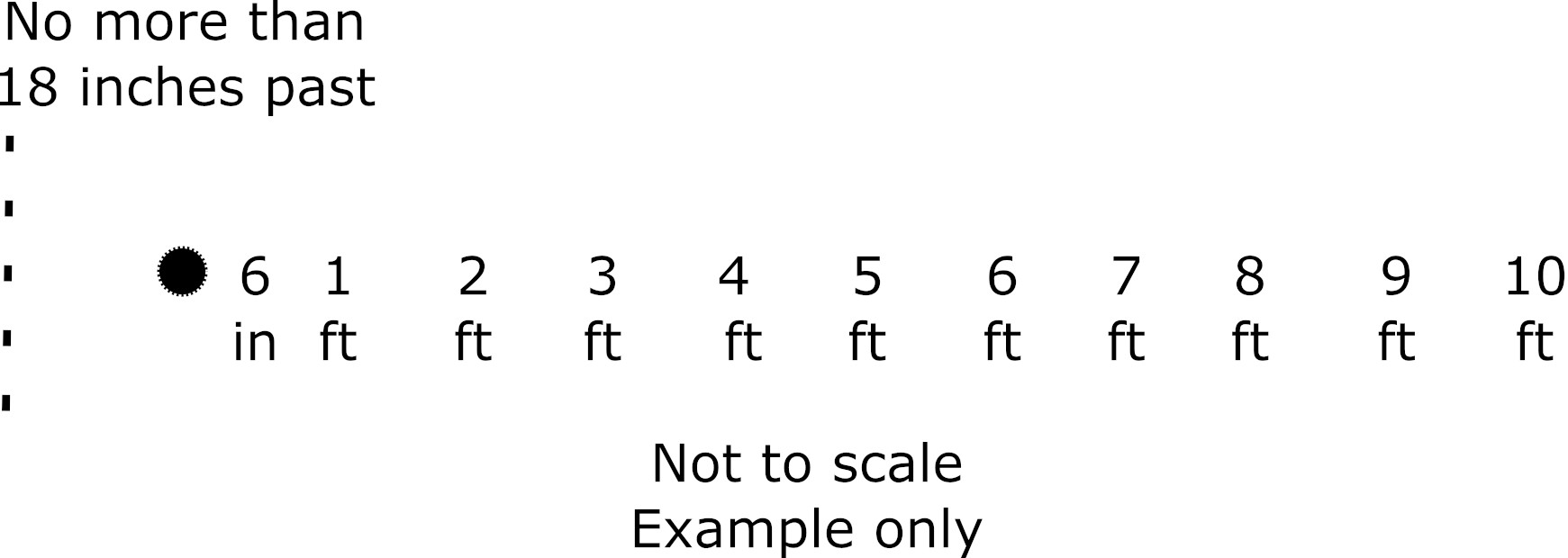
Scoring is 2 points for a made putt. 1 point for a missed putt that is past the hole, but not more than 18 inches past. Short or more than 18 inches past is zero points.
Marker Drill 15, 20, 25, 30, 35 feet
Place markers a 15, 20, 25, 30, and 35 feet. Can be played from both directions with a six foot diameter circle around the hole at 0 feet and at 50 feet made from ball markers or tees. Use five golf balls one for each position. Don’t putt them in order. Mix it up and lay the marker down after the putt to keep track of completed stations.

or set it up around a real hole
Scoring is 2 points for a made putt, 1 point for in the circle, 0 points for any putt outside the circle. (I set up the circle with a 3 foot string and tee putting ball markers in a clock pattern. Also, I change this up by putting uphill and downhill. I either walk this off or use a long tape measure. )
Marker Drill 40, 50 and 60 feet
Place markers a 40, 50 and 60 feet. Can be played from both directions with a six foot diameter circle around the hole at 0 feet made from ball markers or tees. Use 2 golf balls at 40 feet, 3 golf balls at 50 feet and 2 balls at 60 feet. Putt two from 40 feet, two from 50 feet and two from 60 feet. Then putt the last one from 50 feet.

or set it up around a real hole
Scoring is 2 points for a made putt, 1 point for in the circle, 0 points for any putt outside the circle. (I set up the circle with a 3 foot string and tee putting ball markers in a clock pattern. Also, I change this up by putting uphill and downhill. I either walk this off or use a long tape measure.)
Circle Drills
Note: I have a target hole, a piece of string and a tee. The string has 3 and 6 feet marked on it. I place a tee through the center of the target hole. Then loop the string over the tee and go around the hole locating 3 foot putts and 6 foot putts with ball markers. I putt the 3 footers first or they are in the way. Then remove the 3 foot ball markers. See the target holes here.
3 foot radius
Find an area on the green with some break. You can place tees or ball markers around a hole in a 6 foot diameter clock pattern. First place markers at the fall line to mark 12 O’clock and 6 O’clock. (Fall line is the direction water would run off the green) Use markers a 3 O’clock and 9 O’clock and four more positions in between for a total of 8 positions. (I’ve tried 12 markers and it’s too many for me) You can use your putter (around 34 inches ) to position the markers 3 feet from the center. Place one golf ball at each position. Begin at any position and putt around the circle.
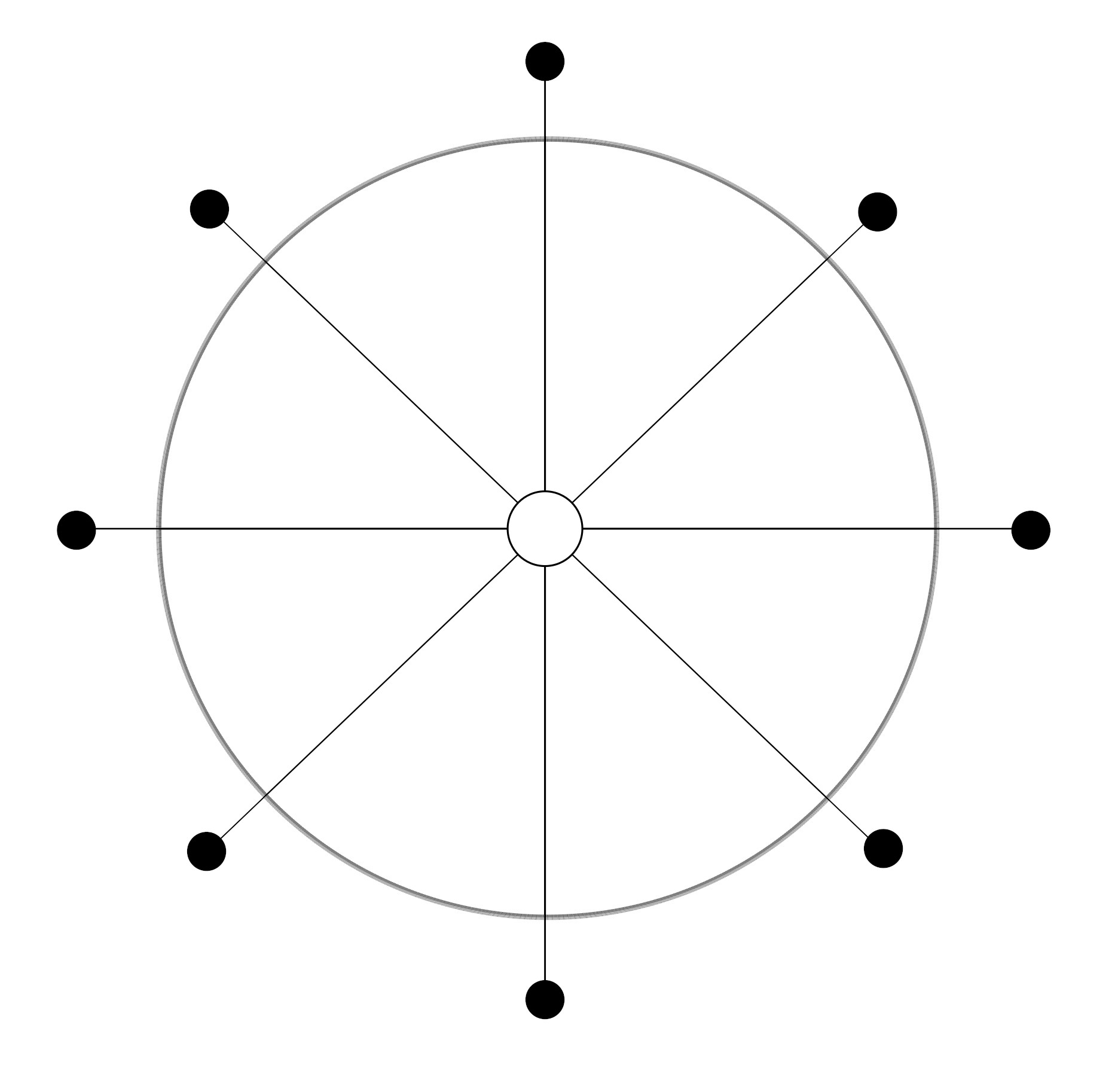
Score by making as many putts as you can.
6 foot radius
Find an area on the green with some break. You can place tees or ball markers around a hole in a 12 foot diameter clock pattern. First place markers at the fall line to mark 12 O’clock and 6 O’clock. (Fall line is the direction water would run off the green) Use markers a 3 O’clock and 9 O’clock and 8 more in between for a total of 12 positions. You can use your putter (around 34 inches ) by flipping it over once to position the markers 6 feet from the center. Place one golf ball at each position. Begin at any position and putt around the circle.
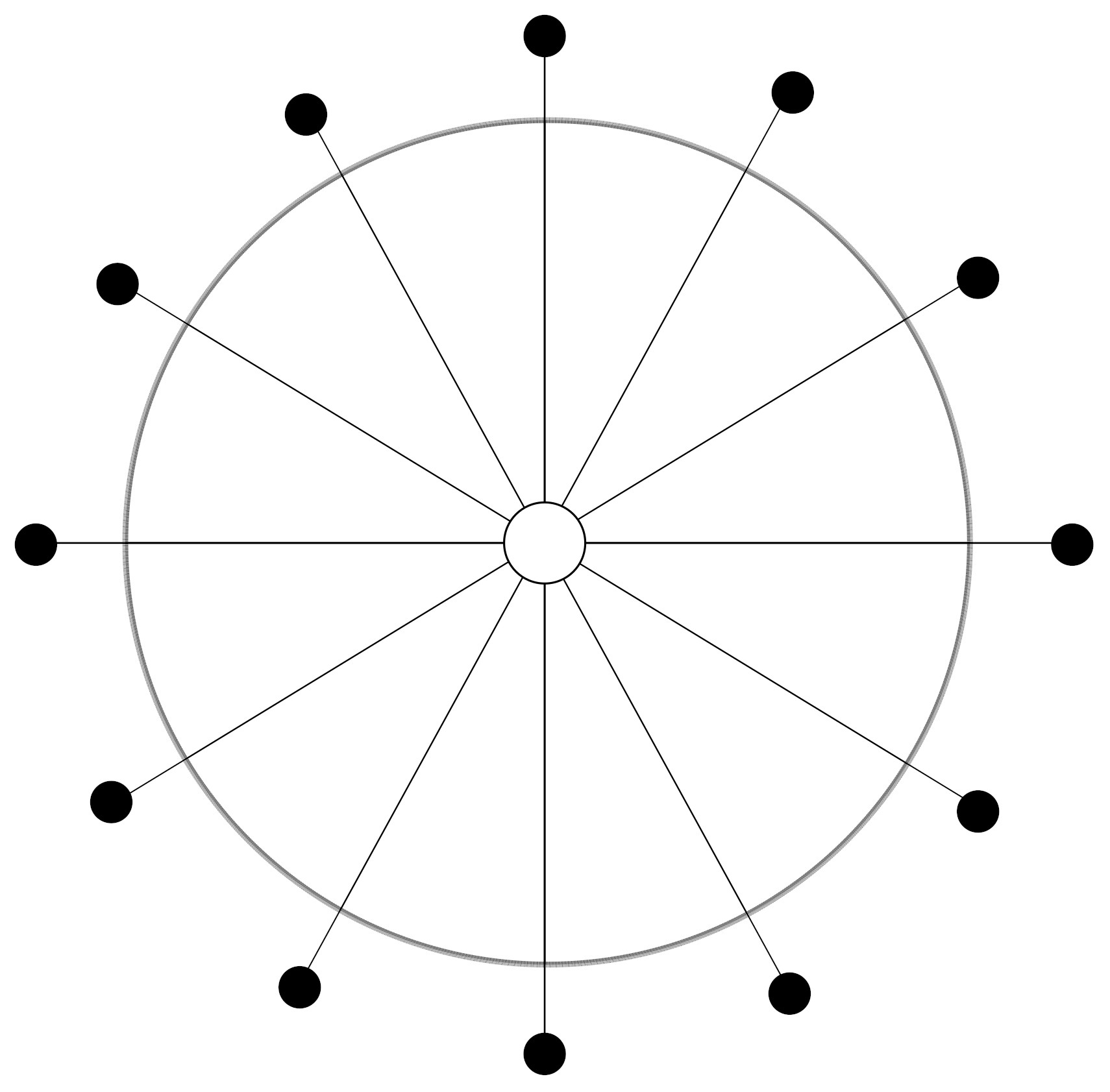
Score by making as many putts as you can.
Leap Frog Drills
Zero to 20 foot leap frog Drill
Use 12 golf balls or more. Start at Zero and putt toward 20 feet. These would start out as short putts and each putt is longer than the last. Example: The first putt is a foot long. The second must go past that and the 3rd must go past the 2nd. Score by seeing how many balls you get in between zero and 20 feet. If you fail to putt past your previous ball. The game is over. Score accordingly.

Use this layout for all leap frog drills
20 foot to Zero reverse leap frog drill.
Use 12 golf balls or more. Start at Zero and putt toward 20 feet. These would start out with long putts and each putt must be shorter than the last. Example: The first putt is a 19 feet long. The second must shorter than that and the 3rd must be shorter the 2nd. Score by seeing how many balls you get in between zero and 20 feet. If you fail to putt short of your previous ball. The game is over. Score accordingly.
The drills above are my go to drills. However, I mix it up once in awhile. Take a look at the drills below. Also, it pays to keep some kind of score so you know if you are improving or not.
More Difficult Putting Drills
Star Drill – Average Pro Level is 14 of 20
Place 5 golf balls around each hole. The positions are 4 feet, 5 feet, 6 feet, 7 feet and 8 feet from the hole. They should be around hole(s) that provide breaking putts. If possible use 4 separate holes. Begin at any position and putt around the star.
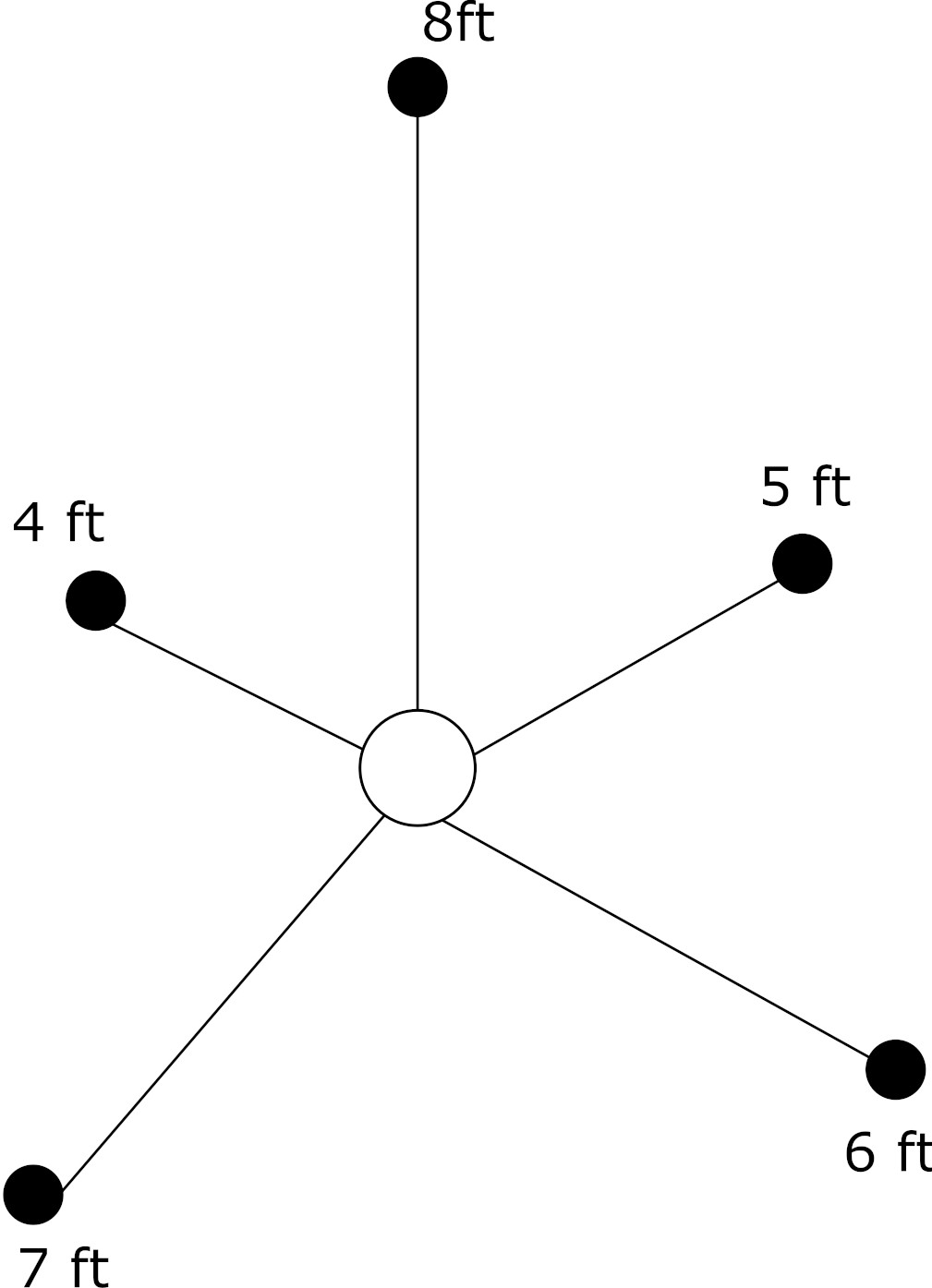
Goal: Make 14 of 20 putts or start over.
Straight line drills – 4 by 4 drill
These are straight line drills. Set up stations at 3 feet, 6 feet, 9 feet and 12 feet from the hole. The object is to make 10 of 16 putts. Begin each skill at 3 feet and continue thru 12 feet.
- Left hand only – from each position 1 time
- Right hand only – from each position 1 time
- Both hands, but looking at hole – from each position 1 time
- Eyes closed – from each position 1 time

Goal: Make 10 of 16 putts using number 1, 2, 3 and 4 skills or start over.
Two foot circle drill – make lots of short putts
This is a two foot circle drill with 4 positions. Object make 32 two footers in a row.
Straight line drill – 3 by 6 drill
Start by setting up markers at 3 feet, 6 feet, 9 feet, 12 feet, 15 feet and 18 feet.
- Make 3 – 3 footers and then 3 – 6 footers in a row – remove markers
- Then make 2 of 3 – 9 footers and then 2 of 3 – 12 footers in a row – remove markers
- Finally, make 1 of 3 – 15 footers and then 1 of 3 – 18 footers in a row – remove markers

You start over at 1, 2 or 3 if you are not successful at that level.
More drills
Six markers over 6 feet ladder drill
Put a marker down at your start line, end line and every foot for 6 feet. Use 6 golf balls. You must putt a least one of the six past the first marker, but not past the second and so on. Failing to putt the ball past the next marker means starting over.

One point for each ball in the correct zone. Short or long equals zero points.
36 inch metal rule drill
This one is fairly simple. Put a metal rule down lined right up to the edge of the hole. I have a metal ruler with a hole in it at the very end to hang it up. I put the ball in that hole to start. The object is to putt golf balls down the metal rule without falling off and ending up in the cup.

One point each for every holed putt. Putting off the metal rule right or left equals zero points. (Works well for a 6 foot putt also, just back the metal rule up up 3 feet)
Metronome drill
Set the metronome or metronome app for 76 beats a minute (or your desired number of bpm). Using a dozen golf balls, putt for 15, 20, or 25 feet. The goal is to make the putts or try to putt as many as you can into a 3 foot circle past the hole. (I put down a poker chip at the start line and either ball markers in a circle at the end or an alignment rod past the hole. 2 points for a holed putt. 1 point for a putt the misses, but not more than 3 feet past the hole. Short or long equals zero points. (I’ve seen pros do this drill from 30 feet, 15 feet and 3 feet using 3 golf balls)
Square Putter Face
T3 Putting Arc with Mirror drill
I putt straight six footers using the T3 Putting Arc. I use 10 golf balls. The putting arc is designed to help you square your putter face. The mirror is designed to help you keep your shoulders square and your eyes in the right place. . I only use this when I’m having trouble with keeping my putter face square at impact.
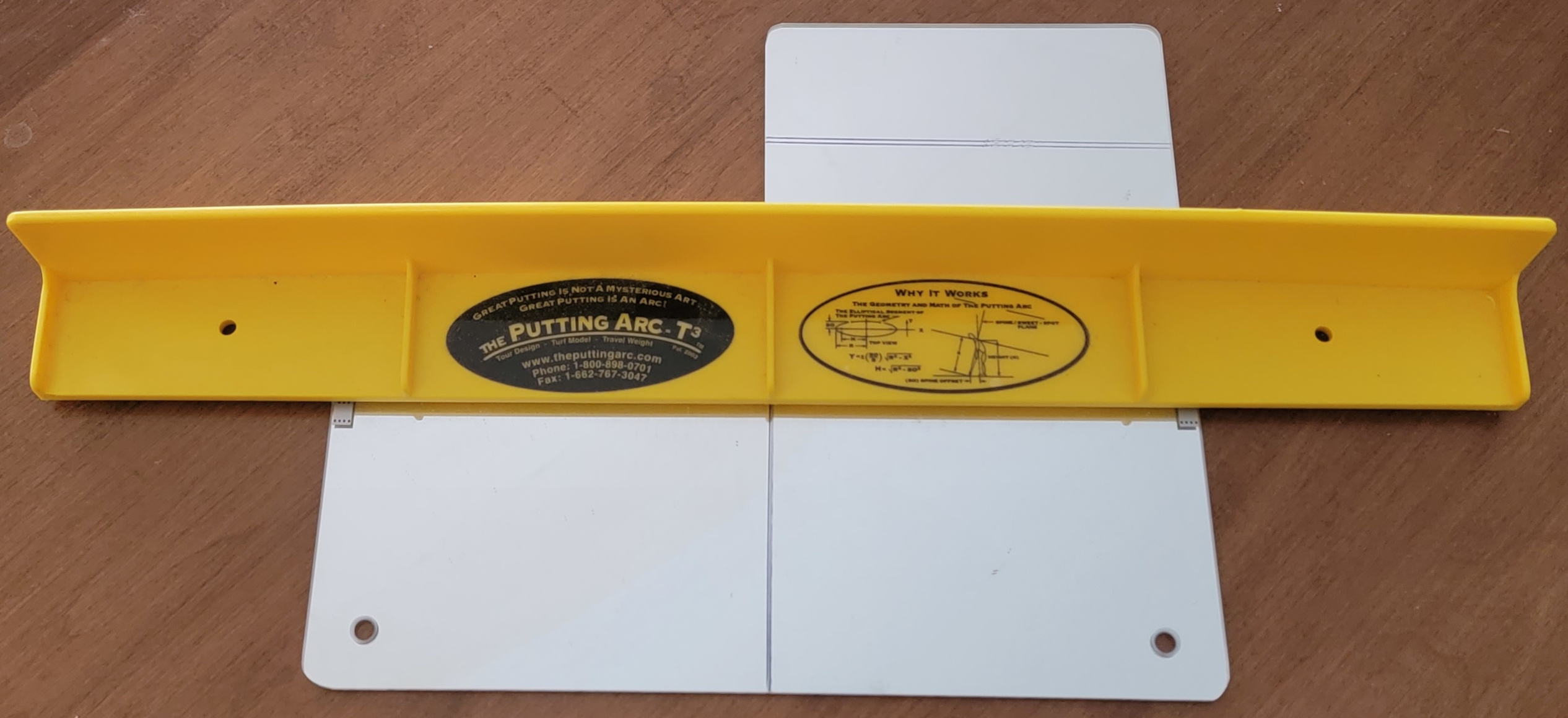
The arc holds your putter heel square
The ball sits in front of line opposite curve
1 point for every holed putt. Note: They have changed the mirror version.
Green Reading
Find the fall line drill
The object is to judge your green reading skills. Use 1 golf ball and a different hole each time. Try to putt the ball in the the hole uphill from at least 6 feet. Your start line is where you think the fall line is. (Fall line – direction water runs away from the hole.) If you judge wrong the ball will go left or right away from the hole.
1 point every time you judge the fall line correctly and make the putt.
You could also do this without hitting a ball by putting a marker down where you think the fall line is. Then measure to check it.
I use a measuring device like Breakmaster. However, you can use a plastic plate and a golf ball. Just put the golf ball in the plastic plate and roll it a little. The ball will find the lowest point using gravity.
Laser Aim Drill
Targeting drill
Aim and trigger The Smart Golfer Laser Alignment System at non-reflective targets.
There are 3 attempts on each target for a total of 9 attempts.
I currently use the Visio Aim Board for this and move it 3 times.
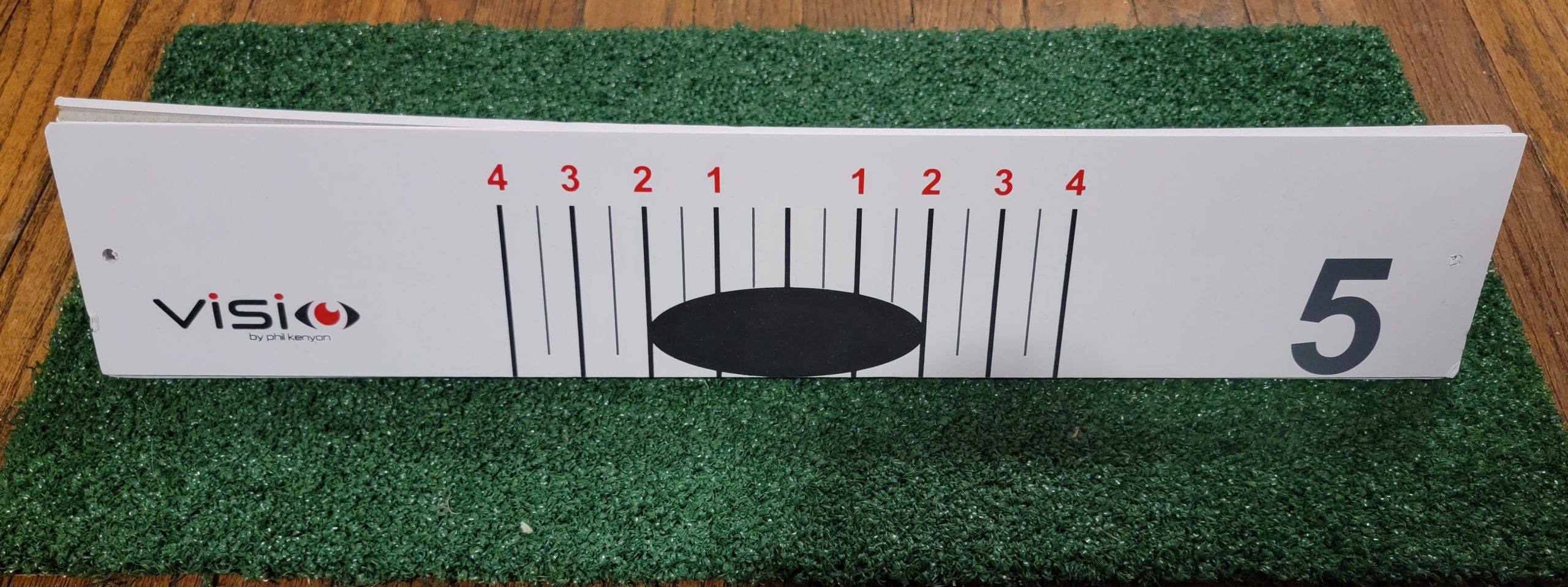
Not reflective
I move the aim board 3 times to different places on the practice green from 5 feet, 10 feet and 15 feet away.
One point for every hit on a target.
Here is why I changed my target.
Initially, I made up nice graphic paper targets and placed them in 5×7 inch restaurant menu holders. Bad idea. They look good and work except the plastic reflects the laser. I still use them for an “aim point” on really long putts.
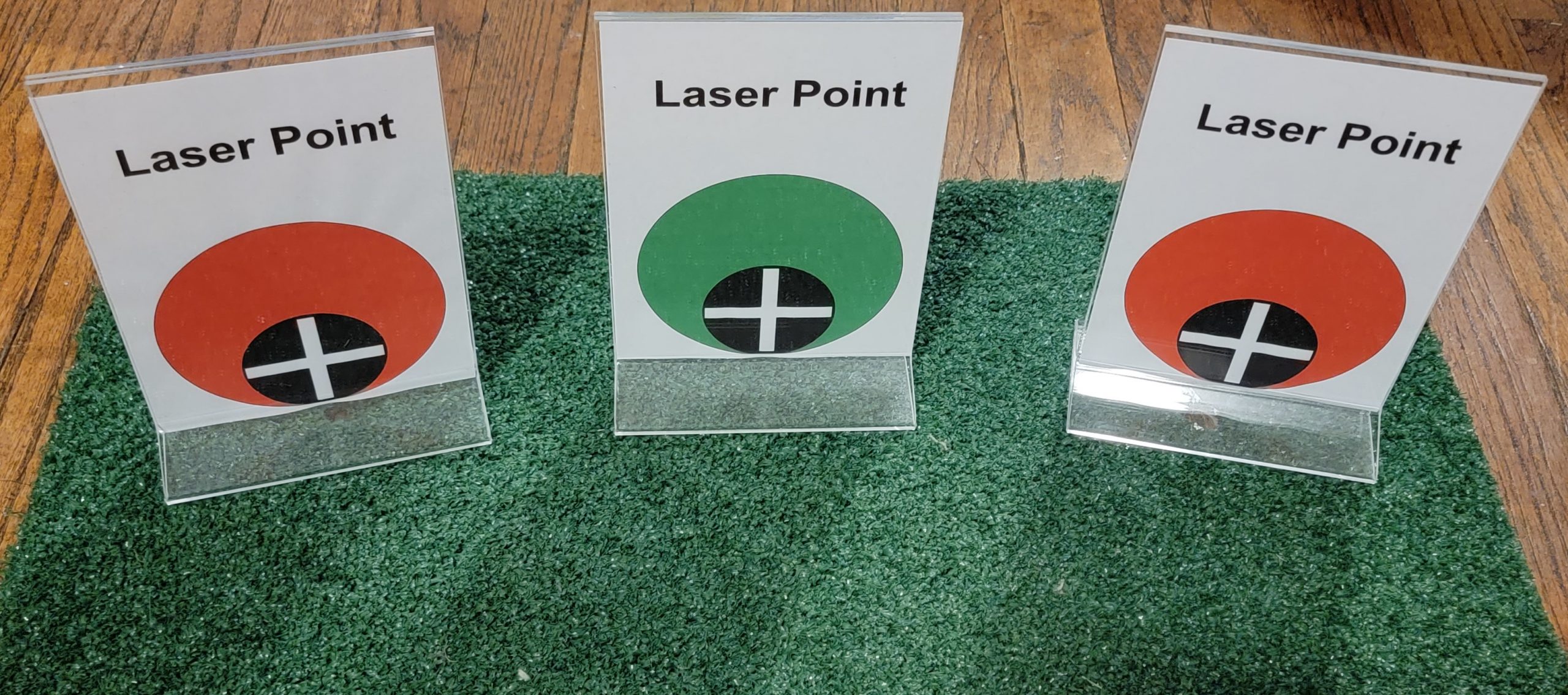
Printable Putting Drills
Click here to download a PDF file of printable putting drills
Printable Putting Games
Short Game Test
Dave Pelz Short Game Test – This is a PDF printable document and includes pitching, chipping, bunker shots, green reading and putting. It is not a short test and may require more than one practice session. I have tried to do this once per month over two practice sessions.
I’ve added in a score sheet for the drills including daily totals.
